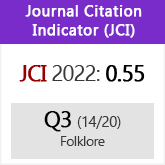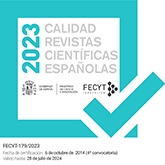Seasonality as the apprehension of time: literature and anthropology of time in Josep Pla’s Empordà
DOI:
https://doi.org/10.3989/dra.2022.026Keywords:
Anthropology of time, Mediterranean ethnology, Literature and anthropology, Temporality, Seasonality, Josep Pla (writer)Abstract
Many peoples of the earth base their apprehension of time on the seasonal indicators that appear and transform throughout the year, whether they are animals or plants, as well as movements in climate and light on the landscape. Some writers have perceived the importance of these issues to understand the culture of the societies they wrote about. In particular, in the post-World War II period, when the effects of modernity were transforming the traditional rural societies of the Mediterranean, we can find some significant examples. This article analyses the case of Josep Pla, one of the main Catalan writers of the twentieth century, whose work contains much reflection on the passage of time in Catalan rural society, and specially the sensitive impression of seasons, on the way in which the passage of time in a vanishing agricultural society is lived. The article frames this literary work in the context of the ethnology of the Mediterranean, the anthropology of time, and specifically in the study of seasonality in culture.
Downloads
References
Abou-Zeid, Ahmed. 1956. «The Great Oasis: A Study of the Social Institutions of El-Kharga; An Egyptian Oasis in the Western Desert». Ph.D. Thesis. Oxford: Bodleian Library, University of Oxford.
Asad, Talal (ed.). 1973. Anthropology and the Colonial Encounter. Amherst: Humanity Books.
Barreau, Hervé. 1985. «Modèles circulaires, linéaires et ramifiés de la représentation du temps», en Dorian Tiffeneau (ed.), Mythes et représentations du temps: 135-155. París: Éditions du CNRS.
Barreau, Hervé. 1996. Le temps. París: Presses Universitaires de France.
Barreau, Hervé. 2000. «The Natural and Cultural Invariants of the Representation of Time in Face of Globalization». Time and Society, 9(2/3): 303-317. https://doi.org/10.1177/0961463X00009002010
Berlin, Brent. 1992. Ethnobiological Classification. Principles of Categorization of Plants and Animals in Traditional Societies. Princeton: Princeton University Press. https://doi.org/10.1515/9781400862597
Birth, Kevin. 2006. «Més que pura successió: les altres dimensions del Temps». Revista d'Etnologia de Catalunya, 28: 20-27.
Boissevain, Jeremy. 1969. Hal-Farrug: A village in Malta. Nueva York: Holt, Rinehart and Winston.
Campbell, John. 1964. Honour, Family and Patronage. Oxford: Oxford University Press.
Carbonell, Eliseu. 2004. Debates acerca de la Antropología del tiempo. Barcelona: Publicacions de la Universitat de Barcelona, Estudis d'Antropologia Social i Cultural.
Carbonell, Eliseu. 2006. Josep Pla: El temps, la gent i el paisatge. Barcelona: Edicions de 1984.
Carbonell, Eliseu. 2010. «'Exactly what I had been looking for': the Anthropology of the Mediterranean 1950-1970». Con(textos). Revista d'antropologia i investigació social, 4: 5-22.
Clifford, James. 1995. Dilemas de la cultura. Antropología, Literatura y Arte en la perspectiva posmoderna. Barcelona: Gedisa.
Clua i Fainé, Montserrat. 2019. «Antropologia i literatura: l'ús de Pedra de tartera com a material etnogràfic». Rassegna iberistica, 42(112): 447-460.
Cutileiro, José. 1971. A Portuguese Rural Society. Oxford: Clarendon Press.
Douglas, Mary. 1981. «Los lele: resistencia al cambio», en Josep R. Llobera (comp.), Antropología económica. Estudios etnográficos. Barcelona: Anagrama.
Du Boulay, Julliet. 1974. Portrait of a Greek Mountain Village. Oxford: Clarendon.
Evans-Pritchard, Edward Evan. 1977. Los Nuer. Barcelona: Anagrama.
Fabre, Daniel. 1990. «Carlo Levi au pays du temps». L'Homme, 30(2): 50-74. https://doi.org/10.3406/hom.1990.369240
Febrés, Xavier. 1990. Josep Pla: biografia de l'homenot. Barcelona: Plaza & Janés Editores.
Fernea, Elisabeth. 1989. «The case of Sitt Marie Rose, an ethnographic novel from the modern Middle East», en Phillip Dennis y Wendell Aycock (eds.), Literature and Anthropology: 153-164. Lubbock: Texas Tech U.P.
Finnegan, Ruth.1977. Oral Poetry. Its nature, significance and social context. Cambridge: Cambridge University Press.
Frigolé, Joan. 1995. Un etnólogo en el teatro. Ensayo antropológico sobre Federico García Lorca. Barcelona: Muchnik.
Gallini, Clara 1999. «Etnografia e scrittura: il mondo mágico di Carlo Levi ed Ernesto De Martino», en Gigliola De Donato (ed.), Il tempo e la durata in «Cristo si è fermato a Eboli»: 277-282. Roma: Farenheit 451.
Gallofré, Maria Josepa (ed.). 2003. Josep Pla, Josep Maria Cruzet. Amb pedres disperses. Cartes, 1946-1962. Barcelona: Destino.
Geertz, Clifford. 1989. El antropólogo como autor. Barcelona: Paidós.
Geli, Carles. 2007. «Reportaje: El canon catalán. Viaje colectivo al centro de las letras catalanas». El País, suplemento literario Babelia, 6 de nov. Disponible en: < https://elpais.com/diario/2007/10/06/babelia/1191627550_850215.html >. Fecha de acceso 18 ene 2021.
Gell, Alfred. 1992. The Anthropology of Time. Oxford: Berg.
Hobsbawm, Eric. 2012. Historia del siglo XX. 1914-1991.Barcelona: Editorial Planeta.
Hoggart, Richard. 1966. «Literature and Society», en Norman McKenzie (ed.), A Guide to the Social Sciences: 19-37. Londres: Weidenfeld and Nicolson.
Iparraguirre, Gonzalo. 2016. «Time, temporality and cultural rhythmics: An anthropological case study». Time & Society, 25(3): 613-633. https://doi.org/10.1177/0961463X15579802
Kaneff, Deema. 2004. Who Owns the Past? The Politics of Time in a 'Model' Bulgarian Village. Oxford: Berghahn Books.
Kroeber, Alfred. 1991 [1922]. «Introduction», en Elsie C. Parsons (ed.), American Indian Life: 11-16. Lincon: University of Nebraska Press.
Leach, Edmund. 1971. Replanteamiento de la antropologia. Barcelona: Seix Barral.
Lévi-Strauss, Claude. 1952. Race et Histoire. París: Unesco.
Lévi-Strauss, Claude. 1998. «Retours en arrière». Les Temps Modernes, 598: 66-77.
Marcus, George. 1991. «Epílogo: La escritura etnográfica y la carrera antropológica», en James Clifford y George Marcus (ed.), Retóricas de la antropología: 357-364. Madrid: Júcar.
Mauss, Marcel. 1979. «Ensayo sobre las variaciones estacionales en las sociedades esquimales», en Sociología y Antropología: 359-430. Madrid: Tecnos.
Mira, Joan Francesc. 2007. «Literatura y antropología», en Carmelo Lisón Tolosana (ed.), Introducción a la antropología social y cultural. Teoría, método y práctica: 547-567. Madrid: Akal.
Peters, Emrys. 1990. The Bedouin of Cyrenaica. Studies in Personal and Corporate Power. Cambridge: Cambridge University Press. https://doi.org/10.1017/CBO9780511598357
Pla, Josep. 1966a. El quadern gris. Obra Completa, 1. Barcelona: Destino.
Pla, Josep. 1966b. Aigua de mar. Obra Completa, 2. Barcelona: Destino.
Pla, Josep. 1967. El nord. Obra Completa, 5. Barcelona: Destino.
Pla, Josep. 1968a. El meu país. Obra Completa, 7. Barcelona: Destino.
Pla, Josep. 1968b. Els pagesos. Obra Completa, 8. Barcelona: Destino.
Pla, Josep. 1968c. Viatge a la Catalunya Vella, 9. Obra Completa. Barcelona: Destino.
Pla, Josep. 1969. Notes disperses, 36. Obra Completa. Barcelona: Destino.
Pla, Josep. 1970. Les illes. Obra Completa, 15. Barcelona: Destino.
Pla, Josep. 1971. Les hores. Obra Completa, 20. Barcelona: Destino.
Pla, Josep. 1974. Un petit món del Pirineu Obra Completa, 27. Barcelona: Destino.
Pla, Josep. 1976a. Tres guies. Obra Completa, 30 Barcelona: Destino.
Pla, Josep. 1976b. Articles amb cua. Obra Completa, 31. Barcelona: Destino.
Pla, Josep. 1979. Notes del capvesprol. Obra Completa, 35. Barcelona: Destino.
Pla, Josep. 1980. Escrits empordanesos. Obra Completa, 38. Barcelona: Destino.
Pla, Josep. 1983. Caps-i-puntes. Obra Completa, 43. Barcelona: Destino.
Pla, Josep. 1984. Darrers escrits. Obra Completa, 44. Barcelona: Destino.
Porqueres, Enric. 2006. «Parentiu i actes individuals: el temps d'una fragilitat estructurant». Revista d'Etnologia de Catalunya, 28: 64-69.
Schneider, Peter y Jane Schneider. 1998. «Il Caso Sciascia. Dilemmas of the Antimafia Movement in Sicily», en Jane Schneider (ed.), Italy's «Southern Question». Orientalism in One Country: 245-260. Oxford: Berg. https://doi.org/10.4324/9781003085768-15
Stacul, Jaro.2005. «Natural time, political time: Contested histories in northern Italy». The Journal of the Royal Anthropological Institute, 11(4): 819-836. https://doi.org/10.1111/j.1467-9655.2005.00263.x
Stirling, Paul. 1965. Turkish Village. Londres: Weidenfeld and Nicolson.
Terradas, Ignasi. 1998. «CIRCA Antropología del tiempo y la inexactitud». Anales de la Fundación Joaquín Costa, 14: 233-253.
Testart, Alain. 2000. «Quelques considérations sur le temps dans la parenté et le mariage entre cousins croisés». L'Homme, 154-155: 547-558. https://doi.org/10.4000/lhomme.48
Thompson, Edward. P. 1991. «Tiempo, disciplina de trabajo y capitalismo industrial», en Costumbres en común: 395-452. Barcelona: Crítica.
Williams, Raymond. 1997. Marxismo y literatura. Barcelona: Península.
Published
How to Cite
Issue
Section
License
Copyright (c) 2023 Consejo Superior de Investigaciones Científicas (CSIC)

This work is licensed under a Creative Commons Attribution 4.0 International License.
© CSIC. Manuscripts published in both the printed and online versions of this Journal are the property of Consejo Superior de Investigaciones Científicas, and quoting this source is a requirement for any partial or full reproduction.All contents of this electronic edition, except where otherwise noted, are distributed under a “Creative Commons Attribution 4.0 International” (CC BY 4.0) License. You may read here the basic information and the legal text of the license. The indication of the CC BY 4.0 License must be expressly stated in this way when necessary.
Self-archiving in repositories, personal webpages or similar, of any version other than the published by the Editor, is not allowed.
















